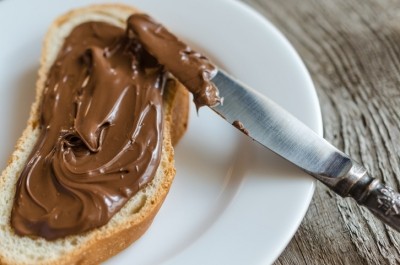The end of the ENL? Nestlé pulls out of Evolved Nutrition Label; others suspend involvement

The Coca-Cola Company, Mondelez, Nestlé, PepsiCo and Unilever were involved in developing the Evolved Nutrition logo, a front-of-pack, colour-coded nutrition logo, and had pledged to trial it on products in certain regions to determine its efficacy.
The logo drew strong criticism from public health campaigners and other stakeholders for providing nutrition information per portion rather than per 100 g, leaving the door open to potentially misleading colour codes.
Ferrero's chocolate and hazelnut-based spread Nutella, for instance, contains 90% sugar and fat but, under the ENL logo, had no red light.
The initiative suffered its first blow in March this year when Mars pulled out on grounds it lacked “credibility and consensus”.
A joint statement issued this morning by all companies said: "The ENL companies acknowledge that the lack of EU-defined portion sizes has led to insufficient understanding and support of the proposed scheme. In this context, and in the absence of legally defined portion sizes, the companies have decided to suspend ENL trials for food."
“Trials of interpretative colour-coded labelling for beverages will continue. As beverages are not consumed in portions smaller than 100 ml, the debate on reflecting smaller portion sizes in labelling doesn’t apply.”
A separate statement issued by Nestlé said it would cease all activities in the initiative.
Nestlé said: “Some stakeholders and governments, however, do not currently agree on the ‘per portion’ approach of ENL. In this context and in the absence of legally defined portion sizes, Nestlé is ending its involvement both in the ENL trials and in the overall development of the scheme,” the Swiss company said.
However, it added that ‘real life’ trials remained useful for gaining insights on how nutrition labelling should evolve to provide people with the right nutritional information.
Bart Vandewaetere, head of corporate communications and government relations for Nestlé EMEA said: “We call on the European Commission to continue EU-wide discussions on front-of-pack nutrition interpretative labelling system that lead to one harmonized solution.
“We are convinced that a harmonized interpretative labelling system would best support consumers and their families in making healthier choices, while reducing complexity for food and beverages companies across Europe. We will participate in EU-led discussions together with the whole industry."
'Insufficient understanding'
Unilever, which had previously announced plans to trial the logo in Spain and Poland, said it was suspending its participation for food and beverages.
“Although scientifically robust and liked by consumers, the lack of EU-defined portion sizes has led to insufficient understanding and support of the proposed scheme,” it said.
A spokesperson for Mondelez said it had not begun the ENL roll-out yet and was putting plans to do so on hold.
“We’ve called for a common EU framework to ‘test and learn’ labelling options but there has been no progress so far. In the current situation, with some governments adopting Nutriscore and others opposing any type of interpretative system, continuing with the trials would risk creating confusion with consumers.
“We think portion control and the right portion guidance is a fundamental element of providing the right consumer information and we’ll keep on working on a credible approach, beyond nutrition labelling.”
Coca-Cola said: "We firmly believe that providing people with the clear and meaningful information they need - without any guesswork – can enable more informed and healthier food choices, and we will commit to publicly sharing our learnings to support the EU-led process underway. Moving forward, we will evaluate next steps and where trials will take place according to local context and following continued engagement with our local stakeholders.”
'Consumers need trustworthy information'
Emma Calvert, food policy officer at European consumer rights group BEUC, welcomed the announcement as “great news”.
“Allowing more lenient criteria for smaller portions would in practice have meant fewer reds on the front-of-pack. This would have inevitably misled consumers. At a time when diet-related diseases are skyrocketing, consumers need trustworthy information about what they eat.
“We are glad companies finally acknowledge that colour coding is the right tool to inform consumers about nutritional contents. But the ENL was not the right way to do so.”
Karine Jacquemart, director of food industry watchdog association Foodwatch, which advocates the mandatory use of NutriScore throughout Europe, said the ENL logo was “purely and simply misinformation”.
Last month (22 October), BEUC addressed a letter to the Commission’s Directorate General for health and food safety (DG SANTE) expressing concerns about the ENL and criticising the companies for pledging to test it in European countries whose governments had voiced support for other labels.
Last week, the Spanish minister of health, consumption and social welfare, María Luisa Carcedo, announced Spain will adopt NutriScore as its official but voluntary logo.
The French and Belgian governments have also chosen it as the official logo.
Carcedo said the government looked at other front-of-pack labels but rejected using them because they “have not been implemented by administrations, do not meet the objectives of promoting the healthiest choice and can even be confusing for the consumer”.
“They are not supported by scientific associations and professionals," she added.


























